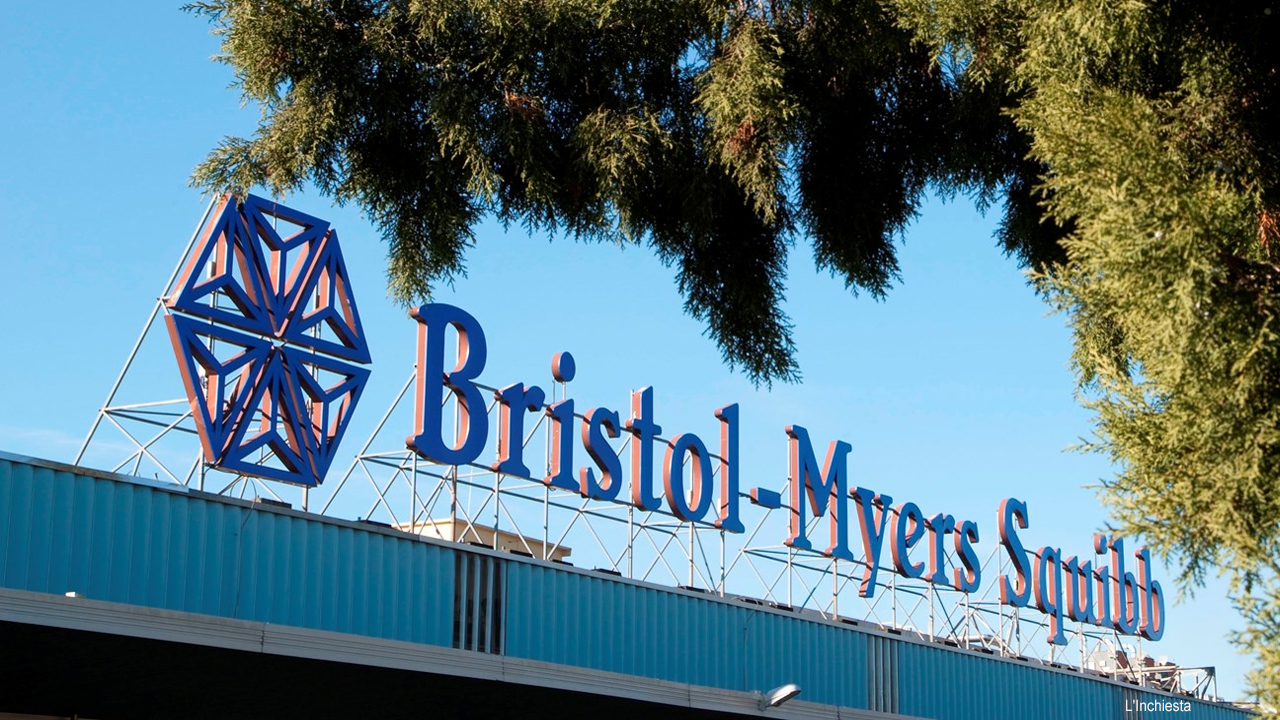Bristol Myers Squibb today announced new results from the QUAZAR AML-001 study presented at the 62nd American Society of Hematology (ASH) Annual Meeting and Exposition, evaluating Onureg (azacitidine tablets; CC-486), an oral hypomethylating agent, as a treatment for adult patients with acute myeloid leukemia (AML) who achieved first complete remission (CR) or CR with incomplete blood count recovery (CRi) following intensive induction chemotherapy. Results demonstrated treatment with Onureg improved overall survival (OS), the primary endpoint of the study, as well as showed clinical benefit across other key secondary endpoints, compared to placebo, in patients with AML in first remission.
A longitudinal assessment of measurable residual disease (MRD) status from QUAZAR AML-001 evaluated treatment with Onureg in patients with both MRD positive (MRD+) and MRD negative (MRD-) status at baseline. The MRD evaluable cohort comprised 463/472 randomized patients (Onureg, N=236; placebo, N=227).
- Median OS was prolonged with Onuregcompared with placebo in patients who were either MRD+ (median 14.6 vs. 10.4 months, respectively; HR: 0.69 [95% CI: 0.51, 0.93]) or MRD- (median 30.1 vs. 24.3 months; HR: 0.81 [0.59, 1.12]) at baseline.
- The median duration of MRD negativity was extended with Onuregvs. placebo (11.0 vs. 5.0 months, respectively; HR: 0.62 [95% CI: 0.48, 0.78]). Treatment with Onureg also resulted in a higher rate of MRD response (MRD+ to MRD-) vs. placebo: 37% vs. 19%, respectively.
- Median relapse-free survival (RFS) was extended with Onureg for both MRD+ (7.1 vs. 2.7 months, respectively; HR: 0.58 [95% CI: 0.43, 0.78]) and MRD- patients (13.4 vs. 7.8 months; HR: 0.71 [0.52, 0.98]).
- The MRD assay used in the QUAZAR AML-001 study is not part of the label recently approved by the U.S. Food and Drug Administration (FDA) for Onuregas a continued treatment for adult patients with AML who achieved first CR or CRi following intensive induction chemotherapy and who are not able to complete intensive curative therapy.
Results from a separate post-hoc analysis evaluated treatment with Onureg in patients from the QUAZAR AML-001 study who had a range of prior consolidation chemotherapy cycles.
- 472 patients were randomized to Onureg (N=238) or placebo (N=234) and most patients (80%) received consolidation before study entry. Common agents used for consolidation were cytarabine, idarubicin and daunorubicin.
- In the cohort where no prior consolidation was administered, median OS withOnureg(N=52) vs. placebo (N=42) was 23.3 vs. 10.9 months, respectively (HR: 0.55 [95% CI: 0.34, 0.89]), and median RFS was 8.4 vs. 3.9 months (0.55 [0.34, 0.88]).
- In the cohort of patients who received one cycle of consolidation treatment, median OS was 21.0 vs. 14.3 months with Onureg(N=110) vs. placebo (N=102), respectively (HR: 0.75 [95% CI: 0.55, 1.02]), and median RFS was 10.0 vs. 4.7 months (0.72 [0.53, 0.99]).
- In the ≥2 consolidations cohort, median OS was 28.6 months with Onureg(N=76) vs. 17.6 months with placebo (N=90) (HR: 0.75 [95% CI: 0.50, 1.11]), and median RFS was 13.0 vs. 6.1 months (0.59 [0.41, 0.87]).
“These analyses from the QUAZAR AML-001 study provide further insight into the clinical activity of Onureg and its potential role in the treatment paradigm of patients with acute myeloid leukemia in first remission following intensive chemotherapy,” said Andrew Wei, MBBS, Ph.D., QUAZAR AML-001 lead investigator, Alfred Hospital and Monash University, Melbourne, Australia. “Persistence of acute myeloid leukemia is frequently measurable after intensive chemotherapy, and these new analyses from the pivotal trial demonstrate that Onureg can improve survival in patients with or without measurable residual disease, and across a range of consolidation cycles.”
An additional post-hoc analysis showed treatment with Onureg was associated with reduced risk of hospitalization events and days in hospital, as well as estimated cost savings associated with hospitalizations, compared with placebo. Hospitalization events in the study were collected starting from informed consent signature through 28 days after the last intraperitoneal (IP) dose. Rates of hospitalization and days in hospital were adjusted for duration of Onureg and placebo exposure. 469 patients received Onureg (N=236) or placebo (N=233). In all, 108 patients (45.8%) in the Onureg arm and 118 (50.6%) in the placebo arm were hospitalized. The analysis showed that Onureg reduced exposure-related rate of hospitalization and days in hospital compared to placebo in the QUAZAR AML-001 study. Additionally, the analysis showed that extended remission periods with Onureg compared to placebo may translate into hospitalization-related cost reductions due to reduced rates of hospitalization and days in the hospital.
“New data we’re presenting for Onureg at ASH highlight its potential to improve long-term outcomes for people living with this aggressive blood cancer,” said Samit Hiravat, M.D., executive vice president, chief medical officer, global drug development, Bristol Myers Squibb. “Moreover, oral treatment options like Onureg that can be taken at home are even more important than ever before for patients.”

 Results demonstrated treatment with Onureg improved overall survival, compared to placebo, in patients with AML in first remission.
Results demonstrated treatment with Onureg improved overall survival, compared to placebo, in patients with AML in first remission.









.jpeg)

.jpg)


.jpeg)
.jpeg)


.jpeg)
.jpg)





.jpeg)


